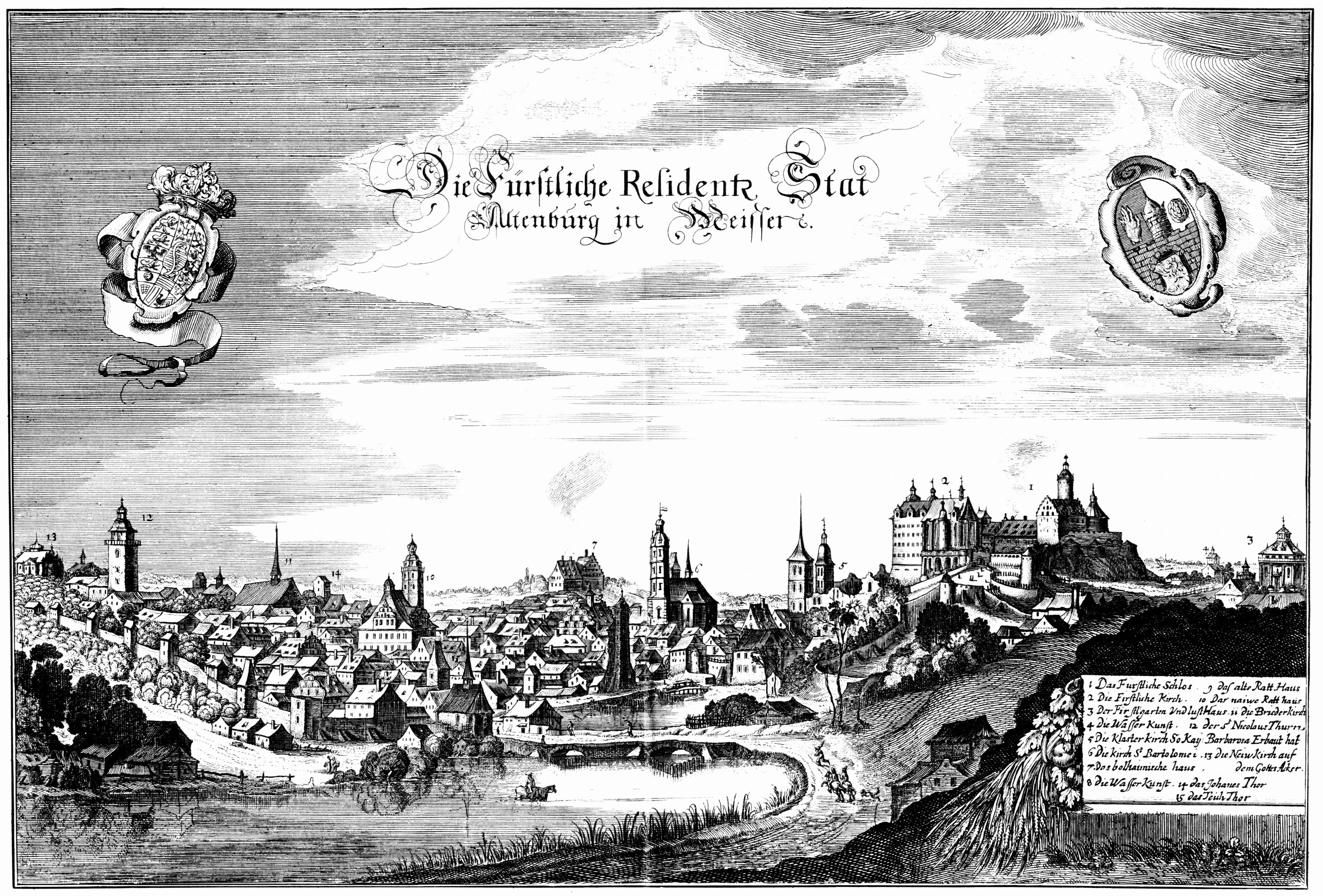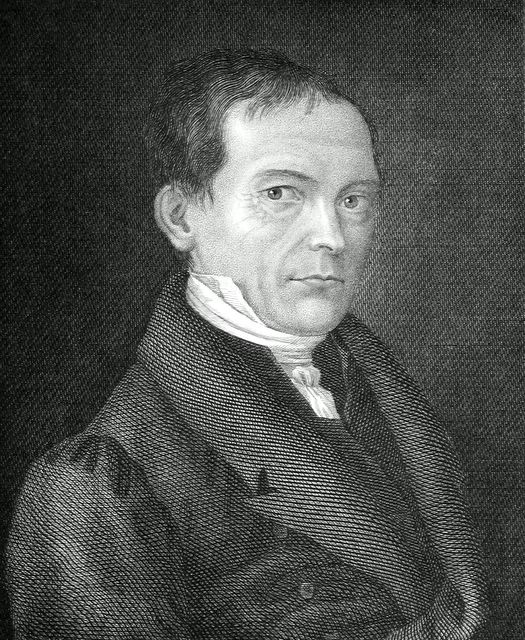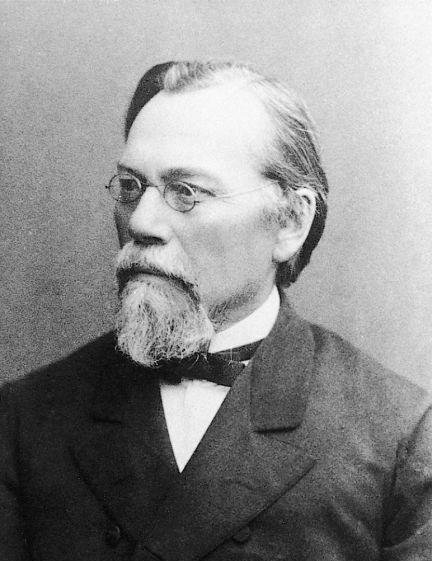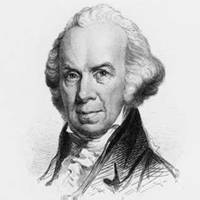|
Johann Severin Vater
Johann Severin Vater (; May 27, 1771, Altenburg – March 16, 1826, Halle) was a German theologian, biblical scholar, and linguist. Biography He was a student and professor at Jena and Halle. In 1809, he became professor at Königsberg. In 1820, he resumed his chair at Halle. Although he taught theology, he is chiefly known as a philologist. In 1817, Vater was elected a member of the American Philosophical Society. Work Following Alexander Geddes, he applied the fragmentary hypothesis to the whole of the Pentateuch, treating it as an aggregate of numerous minor documents that had been compiled together. Vater's major work, ''Commentar über den Pentateuch'' was published in three volumes in Halle between 1802 and 1806. This work's primary purpose was to advance the Supplementary Hypothesis against the earlier Documentarian endeavors of Jean Astruc, Johann Gottfried Eichhorn, and Karl David Ilgen. Many of Vater's conclusions – most prominently, his assertion of the late nature ... [...More Info...] [...Related Items...] OR: [Wikipedia] [Google] [Baidu] [Amazon] |
Altenburg
Altenburg () is a city in Thuringia, Germany, located south of Leipzig, west of Dresden and east of Erfurt. It is the capital of the Altenburger Land district and part of a polycentric old-industrial textile and metal production region between Gera, Zwickau and Chemnitz with more than 1 million inhabitants, while the city itself has a population of 33,000. Today, the city and its rural county is part of the Central German Metropolitan Region. Altenburg was first mentioned in 976 and later became one of the first German cities within former Slavic area, east of the Saale river (as part of the medieval Ostsiedlung movement). The emperor Frederick I, Holy Roman Emperor, Frederick Barbarossa visited Altenburg several times between 1165 and 1188, hence the town is named a Barbarossa city, Barbarossa town today. Since the 17th century, Altenburg was the residence of different House of Wettin, Ernestine duchies, of whom the Duchy of Saxe-Altenburg, Saxe-Altenburg persisted until th ... [...More Info...] [...Related Items...] OR: [Wikipedia] [Google] [Baidu] [Amazon] |
Wilhelm Martin Leberecht De Wette
Wilhelm Martin Leberecht de Wette (12 January 1780 – 16 June 1849) was a German theologian and biblical scholar. Life and education Wilhelm Martin Leberecht de Wette was born 12 January 1780 in Ulla (now part of the municipality of Nohra), Thuringia, where his father was a pastor. As a boy, he was sent to the gymnasium at the nearby city of Weimar. Here he was much influenced by Johann Gottfried von Herder, who frequently examined at the school. In 1799, de Wette entered the University of Jena to study theology, his principal teachers being J. J. Griesbach and H. E. G. Paulus. By the time he submitted his dissertation in September 1804, he was in regular contact at Jena with Jakob Friedrich Fries and Karl David Ilgen, who perhaps led him to his contact with Johann Severin Vater, a scholar whose work he both admired and, in some respects, duplicated independently. He became a ''Privatdozent'' at Jena after completing his doctorate degree. In 1807, de Wette became a profe ... [...More Info...] [...Related Items...] OR: [Wikipedia] [Google] [Baidu] [Amazon] |
19th-century German Male Writers
The 19th century began on 1 January 1801 (represented by the Roman numerals MDCCCI), and ended on 31 December 1900 (MCM). It was the 9th century of the 2nd millennium. It was characterized by vast social upheaval. Slavery was Abolitionism, abolished in much of Europe and the Americas. The First Industrial Revolution, though it began in the late 18th century, expanded beyond its British homeland for the first time during the 19th century, particularly remaking the economies and societies of the Low Countries, France, the Rhineland, Northern Italy, and the Northeastern United States. A few decades later, the Second Industrial Revolution led to ever more massive urbanization and much higher levels of productivity, profit, and prosperity, a pattern that continued into the 20th century. The Catholic Church, in response to the growing influence and power of modernism, secularism and materialism, formed the First Vatican Council in the late 19th century to deal with such problems an ... [...More Info...] [...Related Items...] OR: [Wikipedia] [Google] [Baidu] [Amazon] |
Linguists From Germany
Linguistics is the scientific study of language. The areas of linguistic analysis are syntax (rules governing the structure of sentences), semantics (meaning), morphology (structure of words), phonetics (speech sounds and equivalent gestures in sign languages), phonology (the abstract sound system of a particular language, and analogous systems of sign languages), and pragmatics (how the context of use contributes to meaning). Subdisciplines such as biolinguistics (the study of the biological variables and evolution of language) and psycholinguistics (the study of psychological factors in human language) bridge many of these divisions. Linguistics encompasses many branches and subfields that span both theoretical and practical applications. Theoretical linguistics is concerned with understanding the universal and fundamental nature of language and developing a general theoretical framework for describing it. Applied linguistics seeks to utilize the scientific findings of the ... [...More Info...] [...Related Items...] OR: [Wikipedia] [Google] [Baidu] [Amazon] |
1826 Deaths
Events January–March * January 15 – The French newspaper ''Le Figaro'' begins publication in Paris, initially as a satirical weekly. * January 17 – The John Ballantyne (publisher), Ballantyne printing business in Edinburgh (Scotland) crashes, ruining novelist Sir Walter Scott as a principal investor. He undertakes to repay his creditors from his writings. His publisher, Archibald Constable, also fails. * January 18 – In India, the Siege of Bharatpur (1825–1826), Siege of Bharatpur ends in British victory as Stapleton Cotton, 1st Viscount Combermere, Lord Combermere and Michael Childers defeat the Bharatpur State, princely state of Bharatpur, now part of the Indian state of Rajasthan. * January 30 – The Menai Suspension Bridge, built by engineer Thomas Telford as the first major suspension bridge in world history, is opened between the island of Anglesey and the mainland of Wales. * February 6 – James Fenimore Cooper's novel ''The Last of the Mohicans'' is ... [...More Info...] [...Related Items...] OR: [Wikipedia] [Google] [Baidu] [Amazon] |
1771 Births
Events January– March * January 5 – The Great Kalmyk people, Kalmyk (Torghut) Migration is led by Ubashi Khan, from the east bank of the Lower Volga River back to the homeland of Dzungaria, at this time under Qing dynasty rule. * January 9 – Emperor Go-Momozono accedes to the throne of Tokugawa shogunate Japan following his aunt's abdication. * February 12 – Upon the death of Adolf Frederick, King of Sweden, Adolf Frederick, he is succeeded as King of Sweden by his son Gustav III of Sweden, Gustav III. At the time, however, Gustav is unaware of this, since he is abroad in Paris; the news of his father's death reaches him about a month later. * March – War of the Regulation: Royal Colony of North Carolina, North Carolina Governor William Tryon raises a militia to put down the long-running uprising of backcountry militias against North Carolina's colonial government. * March 12 – The North Carolina General Assembly establishes Wake County, ... [...More Info...] [...Related Items...] OR: [Wikipedia] [Google] [Baidu] [Amazon] |
German Biblical Scholars
German(s) may refer to: * Germany, the country of the Germans and German things **Germania (Roman era) * Germans, citizens of Germany, people of German ancestry, or native speakers of the German language ** For citizenship in Germany, see also German nationality law **Germanic peoples (Roman era) * German diaspora * German language * German cuisine, traditional foods of Germany People * German (given name) * German (surname) * Germán, a Spanish name Places * German (parish), Isle of Man * German, Albania, or Gërmej * German, Bulgaria * German, Iran * German, North Macedonia * German, New York, U.S. * Agios Germanos, Greece Other uses * German (mythology), a South Slavic mythological being * Germans (band), a Canadian rock band * "German" (song), a 2019 song by No Money Enterprise * ''The German'', a 2008 short film * "The Germans", an episode of ''Fawlty Towers'' * ''The German'', a nickname for Congolese rebel André Kisase Ngandu See also * Germanic (disambig ... [...More Info...] [...Related Items...] OR: [Wikipedia] [Google] [Baidu] [Amazon] |
19th-century German Protestant Theologians
The 19th century began on 1 January 1801 (represented by the Roman numerals MDCCCI), and ended on 31 December 1900 (MCM). It was the 9th century of the 2nd millennium. It was characterized by vast social upheaval. Slavery was abolished in much of Europe and the Americas. The First Industrial Revolution, though it began in the late 18th century, expanded beyond its British homeland for the first time during the 19th century, particularly remaking the economies and societies of the Low Countries, France, the Rhineland, Northern Italy, and the Northeastern United States. A few decades later, the Second Industrial Revolution led to ever more massive urbanization and much higher levels of productivity, profit, and prosperity, a pattern that continued into the 20th century. The Catholic Church, in response to the growing influence and power of modernism, secularism and materialism, formed the First Vatican Council in the late 19th century to deal with such problems and confirm ce ... [...More Info...] [...Related Items...] OR: [Wikipedia] [Google] [Baidu] [Amazon] |
Academic Staff Of The University Of Königsberg
An academy (Attic Greek: Ἀκαδήμεια; Koine Greek Ἀκαδημία) is an institution of tertiary education. The name traces back to Plato's school of philosophy, founded approximately 386 BC at Akademia, a sanctuary of Athena, the goddess of wisdom and Skills, skill, north of Ancient Athens, Athens, Greece. The Royal Spanish Academy defines academy as scientific, literary or artistic society established with public authority and as a teaching establishment, public or private, of a professional, artistic, technical or simply practical nature. Etymology The word comes from the ''Academy'' in ancient Greece, which derives from the Athenian hero, ''Akademos''. Outside the city walls of Athens, the Gymnasium (ancient Greece), gymnasium was made famous by Plato as a center of learning. The sacred space, dedicated to the goddess of wisdom, Athena, had formerly been an olive Grove (nature), grove, hence the expression "the groves of Academe". In these gardens, the philos ... [...More Info...] [...Related Items...] OR: [Wikipedia] [Google] [Baidu] [Amazon] |
University Of Jena Alumni
A university () is an educational institution, institution of tertiary education and research which awards academic degrees in several Discipline (academia), academic disciplines. ''University'' is derived from the Latin phrase , which roughly means "community of teachers and scholars". Universities typically offer both undergraduate education, undergraduate and postgraduate education, postgraduate programs. The first universities in Europe were established by Catholic Church, Catholic monks. The University of Bologna (), Italy, which was founded in 1088, is the first university in the sense of: *being a high degree-awarding institute. *using the word (which was coined at its foundation). *having independence from the ecclesiastic schools and issuing secular as well as non-secular degrees (with teaching conducted by both clergy and non-clergy): grammar, rhetoric, logic, theology, canon law and notarial law.Hunt Janin: "The university in medieval life, 1179–1499", McFarland, 2 ... [...More Info...] [...Related Items...] OR: [Wikipedia] [Google] [Baidu] [Amazon] |
American Antiquarian Society
The American Antiquarian Society (AAS), located in Worcester, Massachusetts, is both a learned society and a national research library of pre-twentieth-century American history and culture. Founded in 1812, it is the oldest historical society in the United States with a national focus. Its main building, known as Antiquarian Hall, is a U.S. National Historic Landmark in recognition of this legacy. The mission of the AAS is to collect, preserve and make available for study all printed records of what is now known as the United States of America. This includes materials from the first European settlement through the year 1876. The AAS offers programs on a wide variety of subjects including but not limited to Environmental History, Indigenous Peoples Studies, and American Religion for professional scholars, pre-collegiate, undergraduate and graduate students, educators, professional artists, writers, genealogists, and the general public. The collections of the AAS contain over fou ... [...More Info...] [...Related Items...] OR: [Wikipedia] [Google] [Baidu] [Amazon] |









